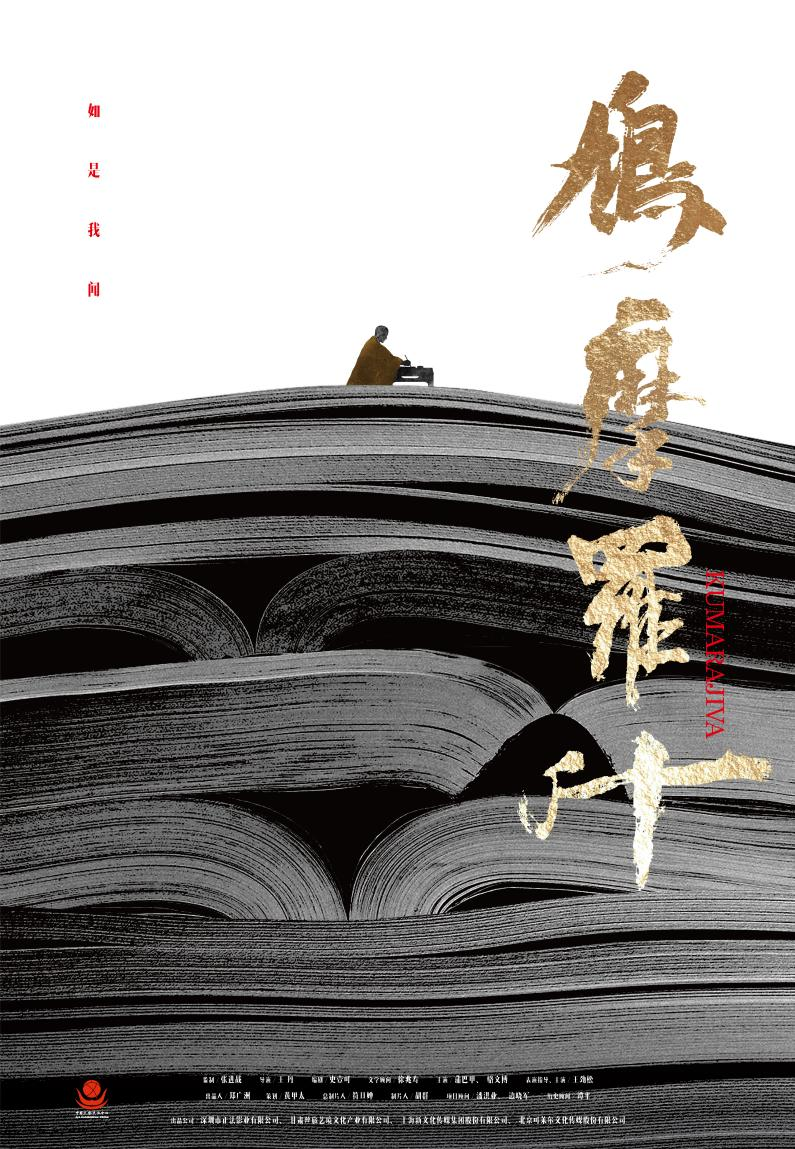Shooting begins on biopic of legendary Buddhist monk
- By Zhang Rui
 0 Comment(s)
0 Comment(s) Print
Print E-mail China.org.cn, June 19, 2022
E-mail China.org.cn, June 19, 2022
A biopic of the famed Buddhist monk and translator Kumarajiva started filming in Shenzhen in June.

Kumarajiva (344-413) is one of the best-known Buddhist monks, scholars and translators, mostly remembered for his prolific translation of Buddhist texts from Sanskrit into Chinese.
At a press conference on June 10, producers of the film said that the movie will perfectly align with the current interest in the Belt and Road, and help convey Chinese history and culture to people around the world. They also expressed their hope that the film will help promote cultural exchanges and cooperation among countries along the Silk Road, inherit the spirit of the ancient trading route, and promote its culture.
Kumarajiva himself is not only an important cultural icon for mutual learning between Chinese and Western civilizations on the ancient Silk Road, but was also a pioneer in creating national unity among ethnic peoples. Producers said that the film will demonstrate how the eminent monk made important choices in his life and examine his contributions in promoting cultural, artistic, religious and linguistic academic exchanges between China and the states to its west.
The Buddhist master was the son of a Hindu father from India and a princess of the ancient Kingdom of Kucha, which lies in present day Aksu prefecture in northwest China's Xinjiang Uygur Autonomous Region. He traveled to Liangzhou, Gansu province, and later to Xi'an, Shaanxi province, along the ancient Silk Route trading network.
In Xi'an, he gained the approval of the imperial family and headed a famous school of translators. He coined and unified many terms in his translations into Chinese, from "fotuo" (Buddha) to "pusha" (bodhisattva), which are still in use today. Many familiar words from the sutras have entered Chinese people's everyday vocabulary, enriching not only the Chinese language but also their philosophical ideas, such as "cibei" for karuna (or "compassion") and "yinyuan" for nidanas (or "causes/effects").
The spread of Buddhism into China was a major event in human history and is closely related to the development of the Silk Road. Kumarajiva came to China around the time of the first large-scale cultural collision between foreign and local culture in China. The sutras he translated then found their way into Korea, Japan and Southeast Asia along the Silk Road, where they also had a profound influence.
The film will be directed by Wang Dan, and star ethnic Tibetan actor Purba Rgyal as the young Kumarajiva, while Wang Jinsong will play the older Kumarajiva. The story is an adaptation of a novel by Xu Zhaoshou, chairman of the Gansu Film Association and dean of the School of Media and Communication at Northwest Normal University.
In preparation for the shoot, the crew has visited many of the places related to Kumarajiva’s life, including his place of birth and sites where he lived and spent time, in an attempt to learn more about the local landscape, architecture, landmarks and culture to enable a faithful reenactment.
The film is scheduled for release in 2023.






Go to Forum >>0 Comment(s)